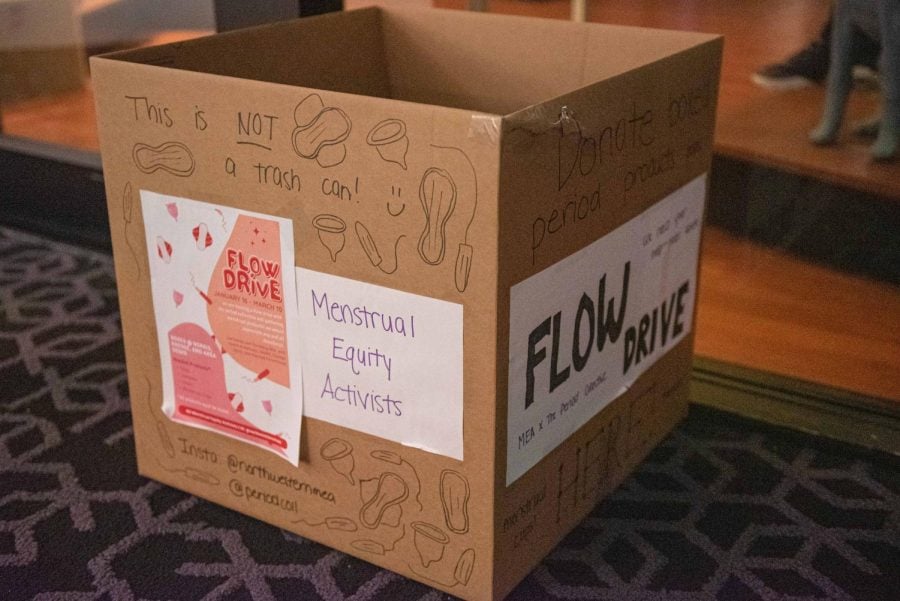NU Menstrual Equity Activists keep the period products flowing with campus drive
Beatrice Villaflor/The Daily Northwestern
Menstrual Equity Activists is hosting a donation drive for period products through March 10. MEA co-President Lili Pope said lack of access to menstrual products can negatively impact a person’s overall wellbeing and mental health.
January 29, 2023
Northwestern’s Menstrual Equity Activists is encouraging students to stock collection boxes across campus with period products like panty liners, tampons and menstrual cups as part of the organization’s quarterly “flow drive.”
Running through March 10, the drive includes collection points at all residential area desks on campus, as well as in Kresge Hall and the Norris University Center. All materials received will benefit local non-profit The Period Collective.
“(Menstrual equity is) a really interesting issue because a lot of people don’t think about it as a big issue in our country and in the world in general, because it only affects about half the population,” Weinberg freshman and MEA member Grace Houren said.
Period products, which remain taxable in some states, can be unaffordable for low-income individuals.
Houren, a member of Associated Student Government’s Health & Wellness Committee, said lack of access to menstrual products can be debilitating for those who menstruate. She said some lower-income people who menstruate often resort to cardboard or socks to soak up bleeding.
“It’s a little bit frustrating that period products have been deemed non-essential, even though they are essential to maintaining your health and dignity,” Weinberg junior and MEA co-President Lili Pope said.
She said menstrual equity is just one subset of equal access to healthcare.
Pope added that lack of access to menstrual products can negatively impact a person’s overall well-being and mental health.
“(Restrictions on) reproductive rights have historically been used to dehumanize marginalized groups,” Pope said. “We’re just focused on restoring dignity for all menstruators and making sure that people can just bleed normally and healthily in a safe environment.”
MEA partnered with five organizations, including the ASG Health & Wellness Committee and Planned Parenthood for the drive.
Weinberg freshman Alison Bai said she plans on donating her excess pads and liners to the drive. She said she felt motivated to contribute after watching a video on menstrual inequities.
Bai said she appreciates that MEA hosts these drives each quarter and that it’s easy to assume people who menstruate have easy access to basic necessities like period products.
“People don’t often think of (period products) when they think of homeless people,” Bai said. “They usually think of food and shelter but for (people who menstruate) specifically … It’s really important.”
Houren expressed that the destigmatization of periods is important to raising awareness of the issue more broadly. She said the drive aims to disrupt this stigma.
But, in addition to hosting on-campus donation drives, Houren said MEA is working to provide period products free-of-charge in all dorms.
“Periods are very stigmatized,” Houren said. “If you’re going to the bathroom to put a tampon in, you’ll hide it in your sleeve because people have made it seem like a gross thing. The first thing would be to just be open to talking about the subject.”
Email: beatricevillaflor2026@u.northwestern.edu
Twitter: @beatricedvilla
Related Stories:
— NU increases menstrual product access, works toward all-gender bathroom equity
— MEA campaigns for free menstrual products in dorm bathrooms
— Menstrual Equity Activists to distribute free menstrual cups on-campus



